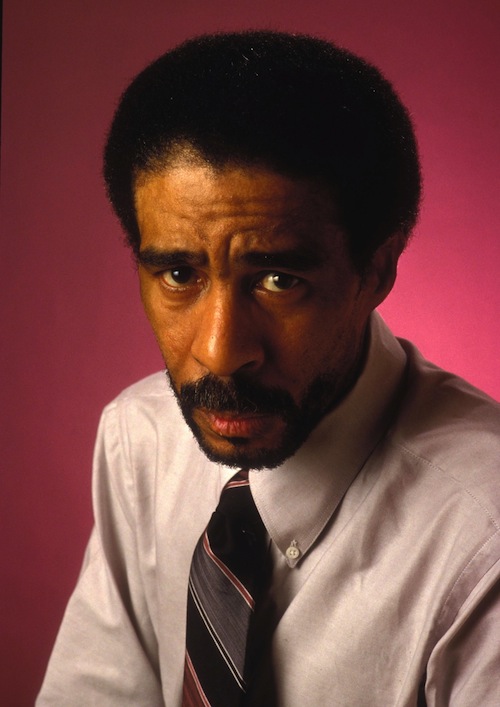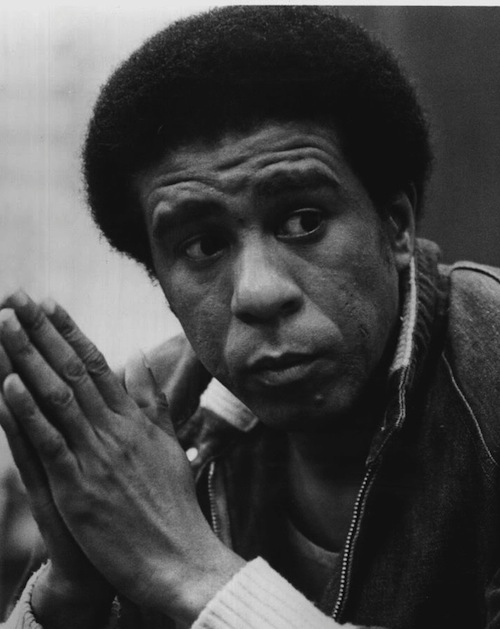
“RICHARD PRYOR: OMIT THE LOGIC”
The late comedian and actor Richard Pryor died December 10, 2005 with an estimated net worth of approximately $40 million dollars. That net worth was earned in recording studios, on TV, and in films. But the place he’s most remembered for, and most revered, is on stage – performing stand-up comedy routines that made him perhaps the most admired comedian to ever perform.
Richard Pryor is to comedians what Jim Brown was to pro football and what Michael Jordan was to pro basketball: The barometer. The highest of measuring sticks.
So, when Showtime rolled out “Richard Pryor: Omit The Logic” last week, the only question that I had was what took so long?
If Marina Zenovich’s new film “Richard Pryor: Omit the Logic” helps explain that reverence to the next generation, it will have done a major public service.
Along the way it’s along a solid, nonjudgmental documentary on a man so tortured he almost killed himself, yet gifted with remarkable insight into human behavior, his and ours.
His skills included a remarkable ability to reference race without being a “Black comedian.” His early embrace and later rejection of the n-word fueled a national conversation on that subject.
The documentary rarely reference race, which underscores even more effectively the ways in which being a man of color shaped Pryor.
Onstage, he wasn’t angry as much as ferocious, a man seemingly driven to tell his story. When he finished a show he’d be soaking wet, as if the material had literally poured out of him.
Yet offstage he hardly let anyone in. He married and divorced, committed and disappeared.
When we get to the part where he set himself on fire and almost died, it turns out he had just watched the famous Vietnam-era footage of a Buddhist monk self-immolating to protest the war.
What impelled Pryor was a little less ideological. He was deeply addicted to free-base cocaine.
His painstaking years of battling addiction was the only shield that he had to bury the hurt and hell that lived inside of him.
For all his discomfort with the world, Pryor’s story doesn’t feel unhappy. He found an outlet in storytelling comedy, which the film suggests kept the demons from overrunning him.
In the process, he gave us insight and laughter.

“Omit The Logic,” tells the price without forgetting what it bought.
It is said that the best comedians are those that have experienced the most pain in their lives. Never was this more obvious than with the comedic genius of Richard Pryor. Raised in a brothel run by his grandmother where his mother worked as a prostitute, Pryor no doubt had a lion’s share of pain to call on for his stand up act.
But the true genius came from Pryor’s willingness to share it all with his audience, and the way in which he shared it. He didn’t look for pity when telling the story of his childhood, nor did he try to avoid personal accountability by taking the role of a victim.
What he did instead was teach us that laughter truly is the best medicine. Even after that fateful night when he lit himself on fire and almost died, Pryor’s next act included his version of what happened that night. And just like the act that followed his heart attack scare, Pryor was able to mine the tragedy in his life for the comedy within.
But for a man who so willingly bared his soul to his audience, Pryor was a private and lonely man who was just as afraid of being with someone as being alone. Pryor was married seven times to five different women and fathered six children.
In 1998, Pryor won the first Mark Twain Prize for American Humor from the John F. Kennedy Center for the Performing Arts. In 2004, Pryor was voted #1 on Comedy Central’s list of the 100 Greatest Stand-ups of All Time. But no amount of awards or posthumous recognition can truly acknowledge Pryor’s impact on American culture.
With his unapologetic observations on the state of race relations, he helped us look at society from a perspective unfamiliar to white America. In doing so he narrowed the gap of understanding and made us question racial stereotypes in this country.






